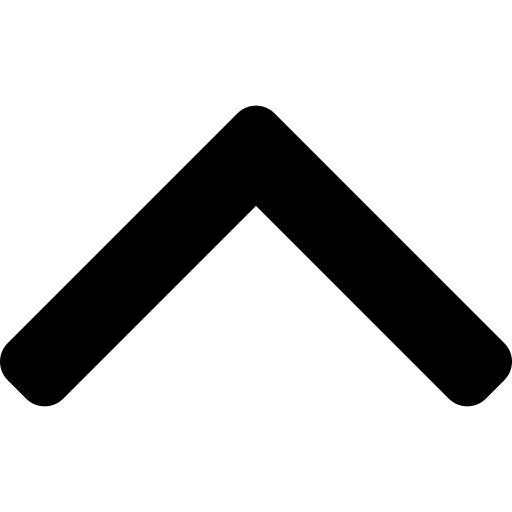What is Slackbot?
Slackbot-LinkExpanding is Slack's crawler that automatically expands links shared in Slack workspaces, creating rich previews with titles, descriptions, and images. This functionality is crucial for workplace communication, helping teams quickly understand shared content without leaving Slack. The bot respects standard meta tags and can be customized through Slack's API for app integrations. For SaaS companies and B2B content creators, optimizing for Slackbot ensures their content is effectively presented in workplace conversations. The crawler also supports special Slack app unfurling for enhanced integrations.
User Agent String
Slackbot-LinkExpanding 1.0 (+https://api.slack.com/robots)
Copy
How to Control Slackbot
Block Completely
To prevent Slackbot from accessing your entire website, add this to your robots.txt file:
User-agent: Slackbot
Disallow: /
Block Specific Directories
To restrict access to certain parts of your site while allowing others:
User-agent: Slackbot
Disallow: /admin/
Disallow: /private/
Disallow: /wp-admin/
Allow: /public/
Set Crawl Delay
To slow down the crawl rate (note: not all bots respect this directive):
User-agent: Slackbot
Crawl-delay: 10
How to Verify Slackbot
Verification Method:
Learn more in the official documentation .
Detection Patterns
Multiple ways to detect Slackbot in your application:
Basic Pattern
/Slackbot/i
Strict Pattern
/^Slackbot\-LinkExpanding 1\.0 \(\+https\://api\.slack\.com/robots\)$/
Flexible Pattern
/Slackbot[\s\/]?[\d\.]*?/i
Vendor Match
/.*Slack.*Slackbot/i
Implementation Examples
PHP
Python
JavaScript
.htaccess
Nginx
Copy
function detect_slackbot() {
$user_agent = $_SERVER['HTTP_USER_AGENT'] ?? '';
$pattern = '/Slackbot/i';
if (preg_match($pattern, $user_agent)) {
// Log the detection
error_log('Slackbot detected from IP: ' . $_SERVER['REMOTE_ADDR']);
// Set cache headers
header('Cache-Control: public, max-age=3600');
header('X-Robots-Tag: noarchive');
// Optional: Serve cached version
if (file_exists('cache/' . md5($_SERVER['REQUEST_URI']) . '.html')) {
readfile('cache/' . md5($_SERVER['REQUEST_URI']) . '.html');
exit;
}
return true;
}
return false;
}
Copy
import re
from flask import request, make_response
def detect_slackbot():
user_agent = request.headers.get('User-Agent', '')
pattern = r'Slackbot'
if re.search(pattern, user_agent, re.IGNORECASE):
# Create response with caching
response = make_response()
response.headers['Cache-Control'] = 'public, max-age=3600'
response.headers['X-Robots-Tag'] = 'noarchive'
return True
return False
class SlackbotMiddleware:
def __init__(self, get_response):
self.get_response = get_response
def __call__(self, request):
if self.detect_bot(request):
# Handle bot traffic
pass
return self.get_response(request)
Copy
const express = require('express');
const app = express();
// Middleware to detect Slackbot
function detectSlackbot(req, res, next) {
const userAgent = req.headers['user-agent'] || '';
const pattern = /Slackbot/i;
if (pattern.test(userAgent)) {
// Log bot detection
console.log('Slackbot detected from IP:', req.ip);
// Set cache headers
res.set({
'Cache-Control': 'public, max-age=3600',
'X-Robots-Tag': 'noarchive'
});
// Mark request as bot
req.isBot = true;
req.botName = 'Slackbot';
}
next();
}
app.use(detectSlackbot);
Copy
RewriteEngine On
RewriteCond %{HTTP_USER_AGENT} Slackbot [NC]
RewriteRule .* - [F,L]
RewriteCond %{HTTP_USER_AGENT} Slackbot [NC]
RewriteCond %{REQUEST_URI} !^/static/
RewriteRule ^(.*)$ /static/$1 [L]
SetEnvIfNoCase User-Agent "Slackbot" is_bot=1
<If "%{HTTP_USER_AGENT} =~ /Slackbot/i">
Header set Cache-Control "public, max-age=3600"
Header set X-Robots-Tag "noarchive"
</If>
Copy
map $http_user_agent $is_slackbot {
default 0;
~*Slackbot 1;
}
server {
if ($is_slackbot) {
return 403;
}
location / {
if ($is_slackbot) {
root /var/www/cached;
try_files $uri $uri.html $uri/index.html @backend;
}
try_files $uri @backend;
}
location @backend {
if ($is_slackbot) {
add_header Cache-Control "public, max-age=3600";
add_header X-Robots-Tag "noarchive";
}
proxy_pass http://backend;
}
}
Should You Block This Bot?
Recommendations based on your website type:
Site Type
Recommendation
Reasoning
E-commerce
Optional
Evaluate based on bandwidth usage vs. benefits
Blog/News
Allow
Increases content reach and discoverability
SaaS Application
Block
No benefit for application interfaces; preserve resources
Documentation
Selective
Allow for public docs, block for internal docs
Corporate Site
Limit
Allow for public pages, block sensitive areas like intranets
Advanced robots.txt Configurations
E-commerce Site Configuration
Copy
User-agent: Slackbot
Crawl-delay: 5
Disallow: /cart/
Disallow: /checkout/
Disallow: /my-account/
Disallow: /api/
Disallow: /*?sort=
Disallow: /*?filter=
Disallow: /*&page=
Allow: /products/
Allow: /categories/
Sitemap: https://example.com/sitemap.xml
Publishing/Blog Configuration
Copy
User-agent: Slackbot
Crawl-delay: 10
Disallow: /wp-admin/
Disallow: /drafts/
Disallow: /preview/
Disallow: /*?replytocom=
Allow: /
SaaS/Application Configuration
Copy
User-agent: Slackbot
Disallow: /app/
Disallow: /api/
Disallow: /dashboard/
Disallow: /settings/
Allow: /
Allow: /pricing/
Allow: /features/
Allow: /docs/
Quick Reference
User Agent Match
Slackbot
Robots.txt Name
Slackbot
Category
social
Respects robots.txt
Yes


